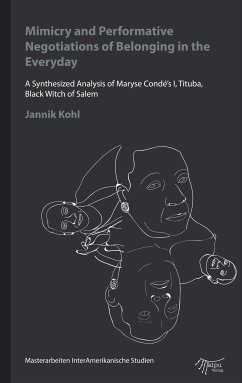In the past three decades, Nira Yuval-Davis' concept of belonging as well as Homi K. Bhabha's concept of mimicry have received considerable attention within social and cultural sciences, as both are involved in discussions concerning the construction of social identities and the relationship between self and Other. Within these fields of social research, the two concepts have proven to be attractive analytical categories in order to re-think traditional and essentialist views on processes of social identification, while at the same time highlighting the importance of fluid and more intersubjective notions of those processes. However, due to some blind spots in their conceptualizations, both have been subject of critique for ignoring important dimensions of social realities. The paper aims to show that by synthetizing both concepts into a new analytical framework, it will be possible to overcome those shortcomings and gain new insights into the process of social identification. In order to prove the viability of this synthetized concept of belonging as a possible analytical concept in literary studies, the framework will be applied on the analysis of the novel I, Tituba, Black Witch of Salem by Caribbean author Maryse Condé. In doing so, the thesis addresses the question of how subjects are capable of negotiating their everyday belongings in contexts of social power relations which are characterized and expressed through intersecting forms of hostility and oppression.
Dieser Download kann aus rechtlichen Gründen nur mit Rechnungsadresse in A, B, BG, CY, CZ, D, DK, EW, E, FIN, F, GR, H, IRL, I, LT, L, LR, M, NL, PL, P, R, S, SLO, SK ausgeliefert werden.









